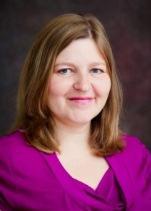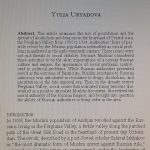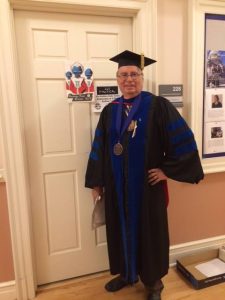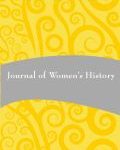 Dr. Yulia Uryadova has published an article in The Social History of Alcohol and Drugs: An Interdisciplinary Journal. Her article, “Prostitution, Alcoholism, and Drugs: Social disorder in imperial Ferghana, examines the rise of prostitution and the spread of alcoholism and drug use in the heartland of Central Asia, the Ferghana Valley, from 1905 to 1914. Russian fears of possible revolt by the Muslim population intensified as social problems manifested in the early twentieth century. These issues were not just threats to social stability. Because Muslims considered these alien importations attributable to a corrupt Russian culture and empire, the appearance of social problems contributed to political problems. While Russian authorities presented revolt as the out
Dr. Yulia Uryadova has published an article in The Social History of Alcohol and Drugs: An Interdisciplinary Journal. Her article, “Prostitution, Alcoholism, and Drugs: Social disorder in imperial Ferghana, examines the rise of prostitution and the spread of alcoholism and drug use in the heartland of Central Asia, the Ferghana Valley, from 1905 to 1914. Russian fears of possible revolt by the Muslim population intensified as social problems manifested in the early twentieth century. These issues were not just threats to social stability. Because Muslims considered these alien importations attributable to a corrupt Russian culture and empire, the appearance of social problems contributed to political problems. While Russian authorities presented revolt as the out come of fanaticism, Muslim resistance to Russian autocracy was articulated in resistance to drugs, alcoholism, and prostitution in the late imperial era. Thus, in the already restive Ferghana Valley, social issues that indicated rising tensions also worked to articulate Muslim discontent, discredited the moral authority of the Russian Empire, and brought into question the ability of Russian authorities to bring order in the area.
come of fanaticism, Muslim resistance to Russian autocracy was articulated in resistance to drugs, alcoholism, and prostitution in the late imperial era. Thus, in the already restive Ferghana Valley, social issues that indicated rising tensions also worked to articulate Muslim discontent, discredited the moral authority of the Russian Empire, and brought into question the ability of Russian authorities to bring order in the area.
Category Archives: Faculty News
Dr. Isaac in the pages of Medieval Warfare
As part of his summer research and writing agenda, Prof. Steven Isaac contributed to two issues of the magazine Medieval Warfare. For the Sept/Oct issue (VII.4), Isaac returned to one of his “favorite” mercenary-villains, Eustace the Monk, who was–as his name indicates–a former man of the cloth who returned to secular life. When local politics left him homeless, Eustace sold his services alternately to either the king of England or to Prince Louis of France, acting as a sea-captain, privateer, or pirate (depending on whose coasts were being protected or ravaged, and which year it may have been). In 1216, Eustace met his end at the Battle of Sandwich, the first fully naval battle of the Middle Ages. The English victory over their former ally meant that the young King Henry III, not Prince Louis of France, would control England. Besides those important facets, th
contributed to two issues of the magazine Medieval Warfare. For the Sept/Oct issue (VII.4), Isaac returned to one of his “favorite” mercenary-villains, Eustace the Monk, who was–as his name indicates–a former man of the cloth who returned to secular life. When local politics left him homeless, Eustace sold his services alternately to either the king of England or to Prince Louis of France, acting as a sea-captain, privateer, or pirate (depending on whose coasts were being protected or ravaged, and which year it may have been). In 1216, Eustace met his end at the Battle of Sandwich, the first fully naval battle of the Middle Ages. The English victory over their former ally meant that the young King Henry III, not Prince Louis of France, would control England. Besides those important facets, th e battle became infamous in later retellings as Eustace’s seafaring prowess was attributed to black magic.
e battle became infamous in later retellings as Eustace’s seafaring prowess was attributed to black magic.
In the upcoming Nov/Dec issue (VII.5), Isaac joined a group of other scholars for a thematic issue dedicated to the murder of Count Charles the Good of Flanders in 1127. His contribution dealt with the series of sieges that convulsed the city of Bruges in the wake of the assassination. Across March, April, and May, the avengers of the count’s murder pushed the conspirators and their allies into an ever-smaller refuge in the city: first, they got the townsmen to let them in the city, then they breached the walls of the count’s castle. Finally, the siege’s violence entered the very church where the murder took place as the Erembald family ran out of supplies, supporters, and stamina. Besides narrating the various sieges, Isaac’s essay focused on how townsmen and nobility dealt with each other during the vicissitudes of urban combat.
Drs. Holiday and Goetz on Study Abroad Effectiveness (and Affectiveness)
 Dr. William Holliday, Associate Professor of History recently published an article with Dr. Lily Anne Goetz (EML) titled “Designing Programs to Foster Intercultural Competence through Interdisciplinary Study Abroad” in NECTFL Review 80 (September 2017): 11-46.
Dr. William Holliday, Associate Professor of History recently published an article with Dr. Lily Anne Goetz (EML) titled “Designing Programs to Foster Intercultural Competence through Interdisciplinary Study Abroad” in NECTFL Review 80 (September 2017): 11-46.
The article presents a model for a short-term interdisciplinary study abroad program designed specifically to foster intercultural competence. It also presents data demonstrating that participants showed improvement in their Spanish language-speaking abilities and exhibited high levels of cognitive and affective engagement. The data also suggests that participants generally performed favorably in comparison to student cohorts on-campus, especially in terms of engagement levels of students with grade point averages less than a 3.0 on a 4-point scale. The article also emphasizes that one cannot assume that cultural immersion will, on its own, lead to intercultural competence.
Besides collecting data for several years from the students they led overseas, Drs. Holiday and Goetz’s collaborative effort overcame numerous obstacles (often not so visible) that come with cross-disciplinary research, and their perseverance deserves extra notice.
Dr. Harbour honored with 2017 Maude Glenn Raiford Award
At Longwood’s special version of Convocation (you know if you’ve seen the Capping Ceremony), Dr.  William Harbour was among 7 faculty honored for their contributions to the university, their disciplines, and students. The department’s own Dr. Harbour won the Maude Glenn Raiford Award, given annually in recognition of outstanding teaching.
William Harbour was among 7 faculty honored for their contributions to the university, their disciplines, and students. The department’s own Dr. Harbour won the Maude Glenn Raiford Award, given annually in recognition of outstanding teaching.
Dr. Kravetz on Female Doctors in Weimar Germany
 Dr. Melissa Kravetz, assistant professor of Modern German history, has had an article published in the Spring 2017 Journal of Women’s History. Her article, “Finding A Space In Schools: Female Doctors and the Reform of Girls’ Physical Education in Weimar Germany,” examined how women physicians in German vocational schools
Dr. Melissa Kravetz, assistant professor of Modern German history, has had an article published in the Spring 2017 Journal of Women’s History. Her article, “Finding A Space In Schools: Female Doctors and the Reform of Girls’ Physical Education in Weimar Germany,” examined how women physicians in German vocational schools  played a key role in educating working-class women about their health, all while dealing with class biases, the resistance of male doctors, and expectations about motherhood. For a fascinating look at “biopolitics” between the world wars, read the article via Project Muse.
played a key role in educating working-class women about their health, all while dealing with class biases, the resistance of male doctors, and expectations about motherhood. For a fascinating look at “biopolitics” between the world wars, read the article via Project Muse.
